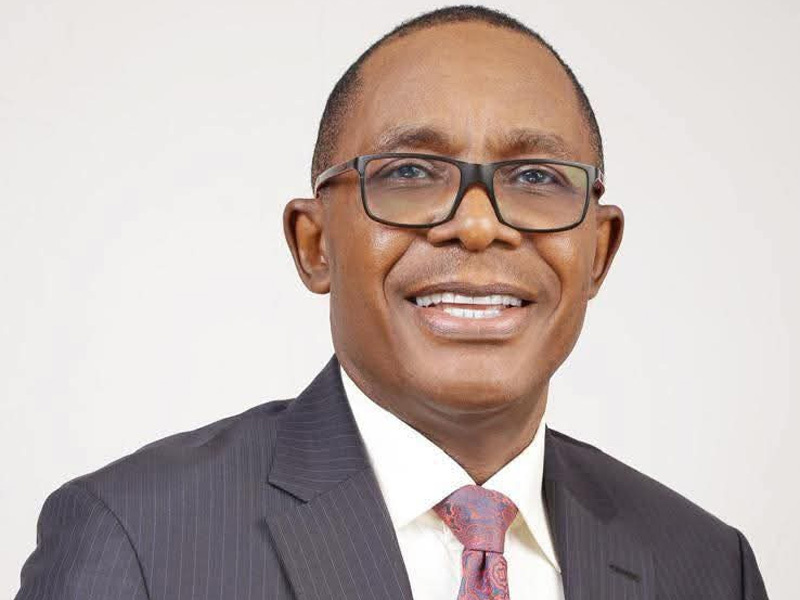Managing Director/Chief Executive of the Nigeria Deposit Insurance Corporation (NDIC), Dr. Oludare Sunday, has urged Nigerians to avoid unlicensed banks and financial institutions not sanctioned by the Central Bank of Nigeria (CBN).**
During the NDIC Special Day at the 20th Abuja International Trade Fair, themed “Sustainability: Consumption, Incentives and Taxation,” Dr. Sunday emphasized the necessity for customers to refrain from engaging with banks, fintech companies, and payment service providers that lack NDIC coverage and to steer clear of Ponzi schemes.
Represented by Olabimpe Akande, Director of the Performance Management Department at NDIC, Dr. Sunday highlighted the corporation’s critical role over the past thirty years in protecting depositors’ funds, especially the most vulnerable populations, and in enhancing the stability of the financial system.
He outlined the NDIC’s primary objectives, which include ensuring deposits in licensed banks, supervising financial institutions, managing distressed banks, and facilitating smooth resolution processes in the event of bank failures.
Dr. Sunday reiterated the NDIC’s commitment to safeguarding the interests of Nigerian depositors, stating, “It is essential for Nigerians to remain vigilant against Ponzi schemes and fraudulent investment platforms. Ensure your funds are only placed in banks licensed by the Central Bank of Nigeria, all of which are protected by NDIC deposit insurance. This vigilance is vital for safeguarding your hard-earned savings.”
He acknowledged the rapid growth of financial technology in the banking sector but stressed that traditional banks continue to play an indispensable role. He assured that regulatory frameworks have been enhanced to ensure compliance and stability across all deposit-taking institutions in the country.
Currently, the NDIC provides deposit insurance for depositors in Deposit Money Banks (DMBs), Mobile Money Operators, and Non-Interest Banks with coverage up to N5 million. Depositors in Payment Service Banks (PSBs), Microfinance Banks (MFBs), and Primary Mortgage Banks (PMBs) are insured up to N2 million.
Dr. Sunday pointed out that this increased coverage safeguards approximately 98.98% of depositors in Deposit Money Banks, 99.27% in microfinance banks, 99.34% in Primary Mortgage Banks, and 99.99% in Payment Service Banks, underscoring NDIC’s unwavering dedication to its mandate.
In collaboration with the CBN, the NDIC works to maintain banking sector stability, enforce banking regulations, and oversee insured deposit-taking institutions effectively.
“Our mission, encapsulated in our tagline ‘Protecting your bank deposits,’ aims to foster financial inclusion and stability by reassuring Nigerians about the security of their savings,” Dr. Sunday stated. He noted significant advancements in depositor protection, particularly through increased maximum deposit insurance coverage, which has expanded protection across various licensed banks.
He explained that, in case of a bank failure, depositors with account balances exceeding the insured limit receive an initial payment up to the maximum insured amount, with any remaining balances distributed through liquidation dividends.
“Liquidation dividends are payouts to depositors and creditors derived from the sale of a failed bank’s assets and the recovery of debts during the liquidation process. These dividends are typically distributed on a pro-rata basis, ensuring depositors receive a fair share relative to their outstanding balances beyond the insured limit,” he elaborated.
Dr. Sunday referenced the revocation of Heritage Bank’s license on June 3, 2024, noting that the NDIC promptly reimbursed insured deposits using the Bank Verification Number (BVN) in coordination with the Nigeria Inter-Bank Settlement System (NIBSS) to identify alternative accounts for payment. Depositors with amounts exceeding five million naira were initially compensated with five million naira, with subsequent liquidation dividends disbursed from recovered assets and debts.
The first tranche of these liquidation dividends began on April 25, 2025, with ongoing payments as the corporation continues to achieve asset sales and recover debts, demonstrating the NDIC’s effectiveness in ensuring comprehensive depositor protection and financial stability.
“This approach aligns with numerous successful liquidation cases where the NDIC has responsibly met claims, reinforcing public confidence in the financial safety net.”

